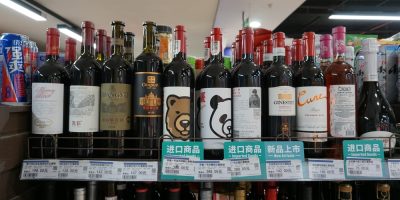-
Vietnam
Vietnam | Updated Law on Pharmacy
21 July 2025
- Distribution
- International trade
- Pharmaceutical Law
On 29 June 2025, the Vietnamese government introduced Decree No. 163/2025/ND-CP (Decree 163). This decree provides detailed guidance on how the updated Law on Pharmacy will be implemented.
Like the amended Law on Pharmacy, Decree 163 came into effect on 1 July 2025, replacing the previous Decree No. 54/2017/ND-CP (Decree 54). The new decree sets out comprehensive rules for key aspects of managing pharmaceuticals, including:
- Pharmacy practice certificates
- Certificates allowing pharmaceutical businesses to operate
- Import and export of medicines and drug ingredients
- Good Manufacturing Practice (GMP) inspections of overseas manufacturers
- Recalling medicines and drug ingredients
- Certificates for medicine advertising content
- Medicine price management
Key Changes in Decree 163
Here are some important changes and additions introduced by Decree 163:
Destroying Specially Controlled Medicines
You no longer need to get approval from the relevant authority before destroying narcotic, psychotropic, and precursor drugs, or pharmaceutical ingredients that are narcotic or psychotropic substances or precursors used in medicines. Instead, you just need to provide notification at least seven working days in advance. This notification must include the planned destruction date and a detailed list of items to be destroyed.
E-commerce in Pharmaceutical
Pharmaceutical businesses that sell products online must openly display the following information to ensure transparency and consumer safety:
- Their certificate allowing them to operate as a pharmaceutical business.
- The pharmacy practice certificate of the person responsible for pharmaceutical expertise.
- Information about the medicines themselves.
Shelf-Life Rules for Imported Products
For medicines and ingredients with a total shelf life of nine months or less, at least one-third of their shelf life must remain when they clear customs. Medicines with a shelf life of 30 days or less must still be within their shelf life at the time of customs clearance.
Controlling Imported Products
All medicines with marketing authorisation (MA) are subject to import control, except for:
- Medicines needed for preventing and treating Group A infectious diseases that have been declared epidemics, as per the Law on Prevention and Control of Infectious Diseases.
- Medicines with a shelf life of less than 30 days.
Importers must inform the provincial People’s Committee at least five working days before making a customs declaration. The People’s Committee can then issue a written notice of non-compliance to the customs authority within five working days of receiving this notification.
Medicine Advertising
Decree 163 adds a process that allows an approved medicine advertising certificate to be adjusted for certain changes (such as a change to the MA holder or manufacturer information). This means you don’t have to go through the entire initial registration process for medicine advertising content again, as was required under the previous rules.
Medicine Price Management
Businesses must announce or re-announce wholesale prices, similar to the medicine price declaration process under Decree 54. Some medicines are exempt from this requirement, including those provided free of charge for emergency responses, national health programmes, humanitarian aid, clinical trials, scientific research, or exhibition purposes, and medicines carried as personal luggage.
The Ministry of Health (MOH) can make recommendations if the announced or re-announced price is significantly higher than similar medicines already on the market. This includes situations where:
- The announced or re-announced wholesale price of the medicine is higher than the highest price of similar medicines.
- The price difference is more than 35% (for medicines priced under VND 1 million) or 15% (for medicines priced at VND 1 million and above) compared to winning bid prices in tenders.
- The announced or re-announced price is higher than prices in the country of origin or other markets (if there’s no similar product in Vietnam).
- When such differences are found, the MOH issues a formal recommendation to the announcing business and publishes it online for transparency and accountability.
Further Guidance in New Circular
On 1 July 2025, the MOH issued Circular No. 31/2025/TT-BYT (Circular 31), which further details how the amended Law on Pharmacy and Decree 163 should be implemented. Circular 31 officially replaces Circular No. 07/2018/TT-BYT and Decree 54 and came into effect immediately.
Key provisions of Circular 31 include:
Notification of Practising Pharmacists
Pharmaceutical businesses that are not part of a pharmacy chain must inform the relevant authority of a list of people currently working at the business who hold pharmacy practice certificates. This notification must be submitted within 15 days of the date the certificate allowing the pharmaceutical business to operate was issued, or when there are any changes to the list. This is a shorter deadline than the previous 30 days under earlier rules.
Pharmacy chains have similar notification duties and deadlines. Specifically, the chain operator must inform the provincial authority where each pharmacy in the chain is located about the list of practising pharmacists at those sites. Additionally, pharmacy chains must notify the authority if pharmacies are added or removed from the chain, and if there are any rotations of the people responsible for pharmaceutical expertise between pharmacies within the chain.
Medicine Information Activities
Under Circular 31, medicine information can still be given to healthcare professionals through information materials, seminars, and medical representatives.
However, Circular 31 introduces a significant change by removing the need to obtain a certificate for medicine information content before carrying out these activities. Under the new rules, pharmaceutical businesses, representative offices of foreign pharmaceutical companies in Vietnam, and MA holders are now responsible for creating and distributing medicine information materials. These materials must comply with the package inserts for medicines approved by the MOH, the Vietnamese National Drug Formulary, and any related documents and professional instructions issued or recognised by the MOH.






















